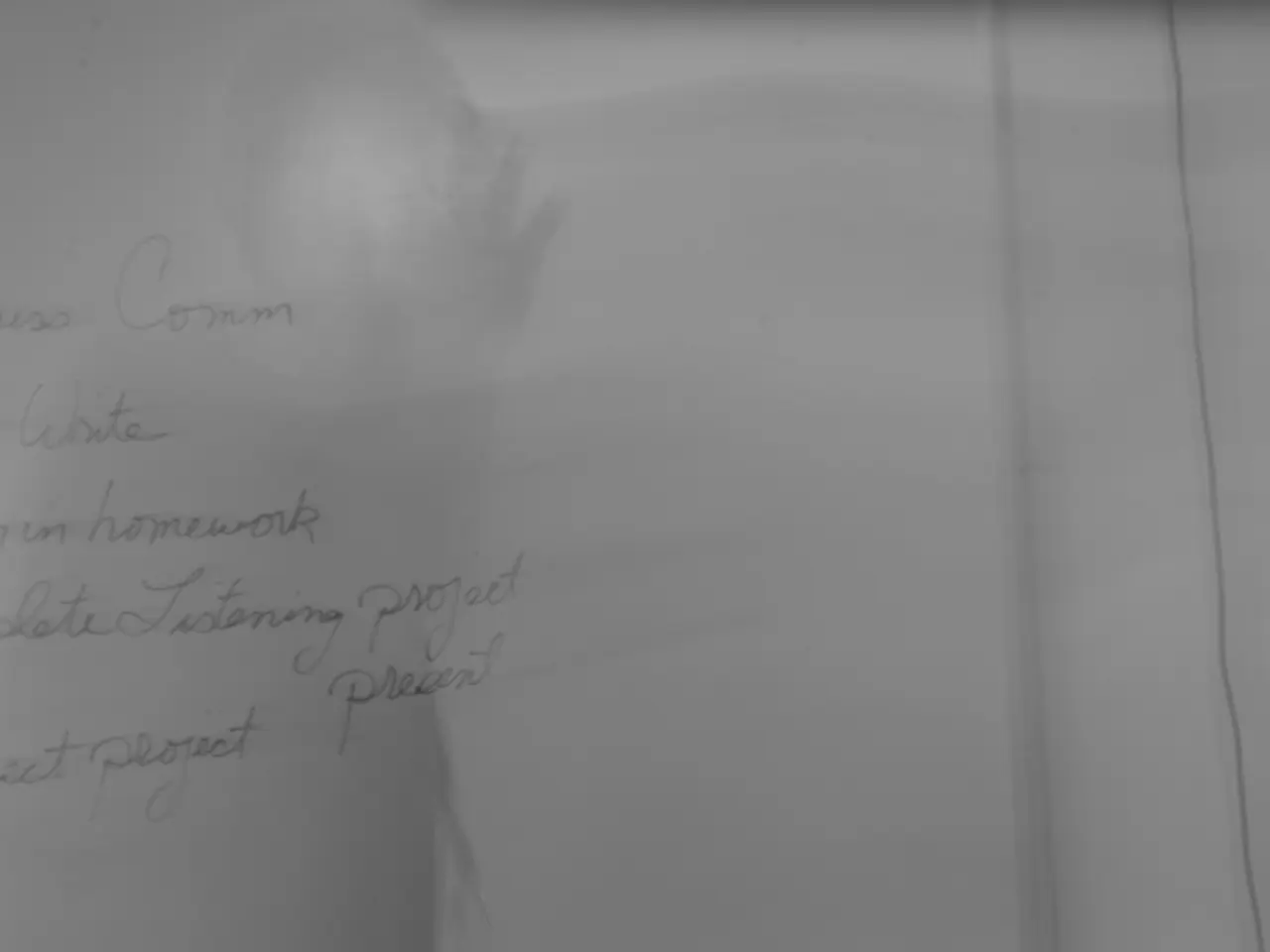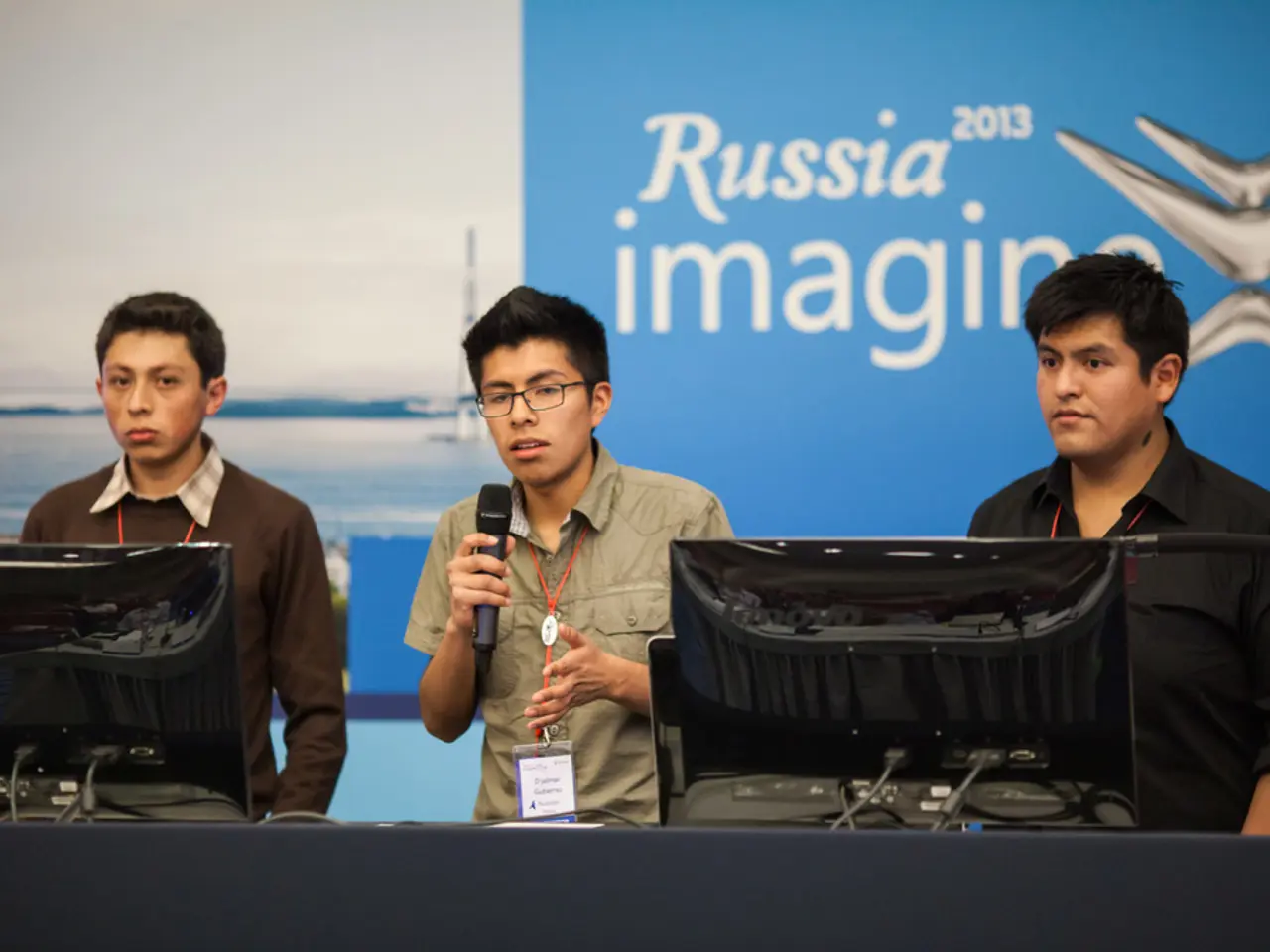Speed Up EU-US Trade Talks, Urges Merz as Deadline Looms - New Washington Proposal Sparks Brussels Debate
A Casual Chat on Trade Matters
U.S. and China seal trade agreement - Merz encourages EU to accelerate negotiations
Trade relations between China and the US seem to be warming up, after both countries agreed to relax certain restrictions, hinted by recent statements from each side. The Chinese Ministry of Commerce plans to review and approve applications for "controlled goods" complying with regulations, in exchange for the US lifting a series of "restrictive measures." US President Donald Trump referred to this development as a trade deal, but provided little detail. He also suggested a potential "very big deal" with India was in the works.
Brussels Caught Between Deadlines
The EU Commission has acknowledged receiving a new proposal from the US for ongoing trade talks with Brussels. Commission President Ursula von der Leyen made this announcement after an EU summit. Although the EU is open to reaching an agreement, they are preparing for potential stalemate. "All options remain on the table," she said. German Chancellor Friedrich Merz pushed for quick negotiations, arguing, "Better quick and simple than slow and highly complex."
The EU is facing a tariff threat, particularly from the automotive, chemical, pharmaceutical, machinery, and steel and aluminum industries, which need a resolution soon.
WTO Redesign on the Horizon
The EU is also considering replacing the largely dysfunctional World Trade Organization (WTO). German Chancellor Friedrich Merz has suggested a "new type of trade organization" to address the WTO's inadequacies, specifically regarding dispute resolution mechanisms. Merz has discussed this idea with French President Emmanuel Macron and British Prime Minister Keir Starmer, emphasizing the importance of continued free trade.
Mercosur Deal Nears Completion
Merz also expressed optimism about the swift conclusion of the trade agreement between the EU and Mercosur countries, after the EU summit. Leaders were in agreement that the deal should be finalized as soon as possible. French President Emmanuel Macron, however, expressed reservations about the current agreement, stressing the need for fair and coherent agreements.
Trump's Shockwaves
US President Trump's unconventional trade policy, along with his stance on international organizations like the WTO, has sent ripples around the world. Trump justifies his approach by arguing the need to correct trade imbalances and to finance his tax cuts with tariff revenues. Nevertheless, the EU views the tariffs as unfair and inconsistent with WTO rules.
In a nutshell, the EU and US are in a tense, time-sensitive trade predicament. Key concerns revolve around tariff levels, agricultural and tax policies, and the EU's unity in addressing US demands. Merz and other European leaders argue for a quick, well-balanced settlement to safeguard their industries, while the EU consideration is measured and deliberate, weighing the risks of trade tension intensification against the potential for a balanced accord [1][2][3][4][5].
- The EU's ongoing trade negotiations with the US are tense and urgent, with a deadline approaching that, if unmet, could result in severe tariff penalties. The US has imposed reciprocal tariffs on various products and threatened to raise these tariffs to 50% on all goods if an agreement is not reached by July 9, 2025.
- Key sticking points in the negotiations include tariff levels, agricultural and tax policies, and the EU's internal cohesion in meeting US demands. The US approach involves imposing tariffs and demanding concessions to lift them, creating complications in reaching a mutually beneficial deal. The EU is cautious and evaluating new proposals from the US, seeking to avoid worsening trade tensions while potentially concluding a balanced agreement [2][5].
- Should the EU fail to reach a deal or settle for an unfavorable agreement, German exports, particularly in automotive and manufacturing sectors, could take a significant hit, reducing Germany's trade volume with the US and increasing costs for manufacturers reliant on US components and markets.
- The escalating trade tensions among the world's major economies like the EU and US undermine the multilateral trade system managed by the WTO. Bilateral tariff impositions and retaliations risk weakening the WTO's authority and encouraging protectionism rather than cooperation.
- German leaders advocated for urgent, balanced negotiations, while EU leaders approached new proposals from the US with caution, engaging in active debate as they weigh the risks and potential outcomes of various responses [1][2][3].
- Amidst the looming deadlines, the EU is engaged in policy-and-legislation debates over speeding up trade talks with the US, as failure to reach an agreement could impose severe tariff penalties and impact the general-news arena.
- The ongoing trade negotiations between the EU and US are fraught with complexity, as they grapple with key sticking points such as tariff levels, agricultural and tax policies, and the EU's internal cohesion in meeting US demands – a delicate dance that shapes the current political landscape.








